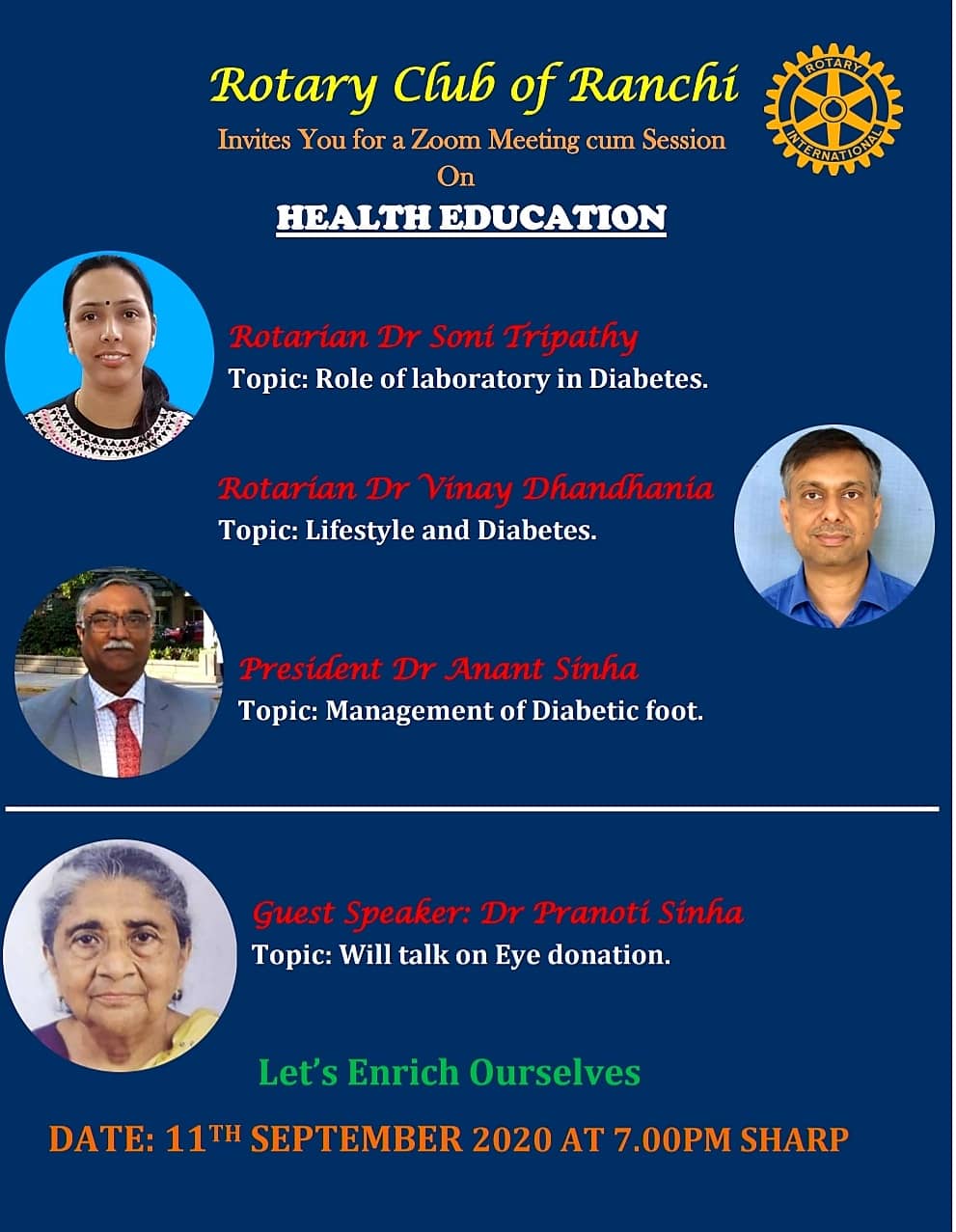
Meeting Of Rotary Club
On 11 September Dr. Pronoti Sinha was the Guest Speaker at a meeting of Rotary Club of Ranchi. Other speakers spoke on diabetes. Dr. P. Sinha emphasized the need for all to cooperate in spreading the message of eye donation. She invited the Rotarians to come forward and involve themselves with the work Bihar Eye Bank Trust is doing in smaller towns and villages.
India has the largest blind population in the world. Out of 37 million blind people 15 million are in India. After cataract and glaucoma, corneal problems are the next important cause of blindness. Out of the 15 million in India, 3 million suffer from corneal blindness. The sad part is that 26% of these are children. These children grow up with no future ahead of them. Imagine the loss to national revenue.
NPCB data says that 2 lakh corneas are required every year but in 2019-20 only 65,000 were collected and out of this about 50% was fit for transplant. Every year more patients are added.
If the glass on your watch is scratched and damaged, you cannot see the watch. If the watch is all right, the problem can be solved by changing the glass. Similarly, what looks like the black part of the eye is actually a transparent tissue. If this tissue is damaged by malnutrition, injury or illness but the eye is all right, the problem can be solved by transplanting a new cornea from a deceased person on to the blind man’s eye. The only way we can get corneas for transplant is through eye donation. Hence the need for motivating people to donate their eyes.
Ignorance, misconceptions and superstitions stand in the way of widespread eye donation. {Most people know about cataract but few ask the doctor whether their cornea is healthy. People outside big towns probably do not have doctors who recognize these problems. One misconception even I had was that removing the eyes would make the face look ugly. I found that actually the whole eye is not removed and the man appears to be sleeping. One superstition is that one will be born blind in the next life if one donates his eyes.} We have to work together to persuade people to forget these wrong beliefs.
Eyes cannot be bought or sold nor can they be taken from a man who is alive.
Who can donate?
Almost anyone can donate but eyes cannot be collected from men who have died from AIDS, Hepatitis B and C, rabies, septicemia, meningitis and such diseases.
